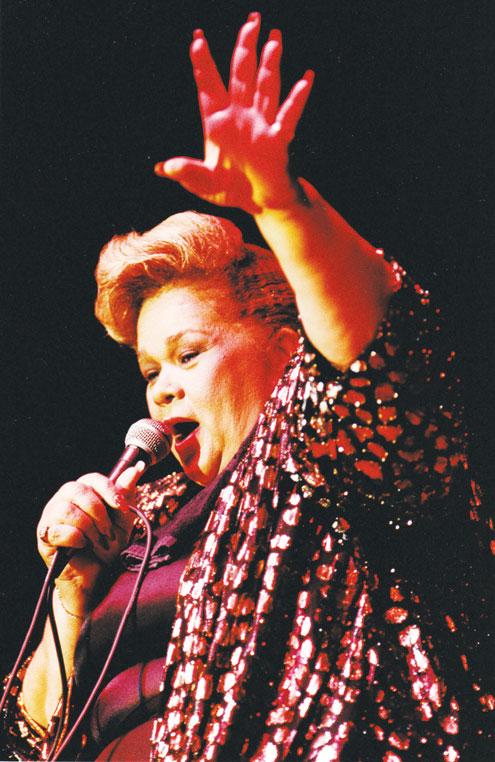Etta James, famed American soul and R&B singer, passed away this past Friday, concluding a battle with leukemia that began early last year. When I mentioned this to friends the following day, I was met with mostly similar, disheartening yet unsurprising responses.
Most replies ranged from the clueless “Etta what?” to the slightly more informed “Oh, that singer lady.” Many hadn’t a clue who she was, some were vaguely familiar with the name and few knew her profession. None could put a name to any of her tunes. Either I’ve just got one small group of uninformed friends, or I can draw the conclusion that folks my age just aren’t all that interested in old pop music.
I’m not particularly surprised by this general reaction amongst my peers. After all, in an age where music from two years prior is considered “old,” who’s to care about the hits and stars of times as ancient as the ‘60s? This stuff was popular before our parents could even walk, so why should we care?
These sentiments are fairly reasonable. As we grow older and our times grow more distant from those of Etta James, naturally we stop getting exposed to those sounds. With all the new information and artists arising every day, it’s hard to take a step back and reflect on music to see how we’ve gotten where we are today.
Despite this, the impact of Etta James’ career and music is so large that it should not and cannot go unnoticed by my generation.
James did not merely impress through the power of her soulful voice. In her lifetime, James pioneered the development of music as she bridged the gaps between genres as diverse as jazz, R&B, soul, rock ‘n roll, gospel and blues, as made clear by her more than thirty awards from organizations like the Rock and Roll Hall of Fame, the Rhythm and Blues Foundation and the Rockabilly Hall of Fame.
Much of the music we listen to today wouldn’t sound the way it does without the influence of James and other artists from her time. Among those who cite Etta James as an influence are classic stars such as Diana Ross, Janis Joplin and Rod Stewart. The list continues down the generations to modern musicians like Hayley Williams of Paramore and contemporary pop singers Christina Aguilera, Amy Winehouse and Beyoncé, who also portrayed Etta James in the 2008 film “Cadillac Records.”
Regardless of age, background or musical preference, there is much to be admired in the life of Etta James. Her music may belong to an era alien to my generation, but its spirit and message still remain relevant today. Her achievements will be appreciated as long as music continues to be composed.
So, if you’re a fan, spin a few of her tunes in tribute. If her life itself is news to you, maybe you could take this opportunity to hunt down a copy of her 1960 debut “At Last!” and discover what you’ve been missing out on since before you were born.









